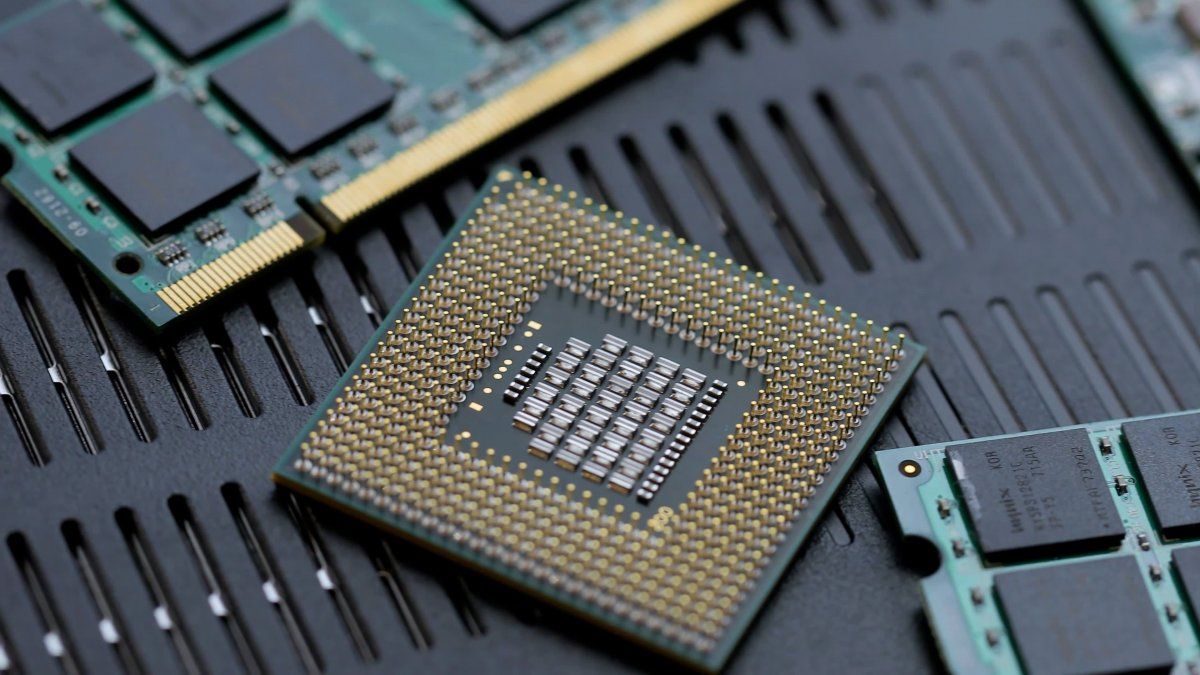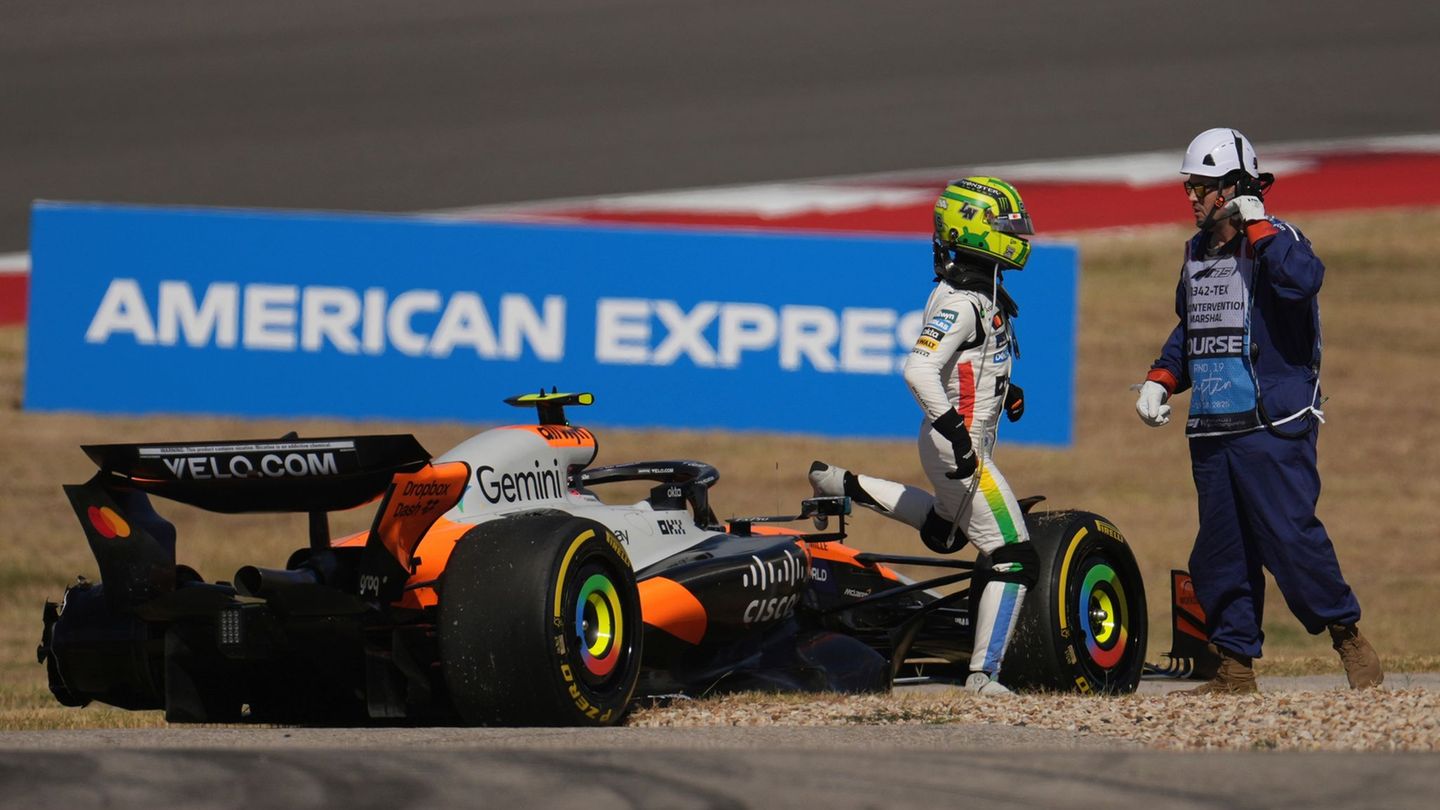The largest chips manufacturer by the world’s contract, Taiwan Semiconductor Manufacturing Company (TSMC)presented an optimistic perspective for the year thanks to the solid demand for artificial intelligence applications (AI), and said that he has not yet seen changes in the behavior of his clients, despite uncertainty around US tariffs.
The Taiwanese company, considered a benchmark for the global semiconductor industry, maintained its annual sales and investment projections on Thursday, and predicted that the revenues from AI chips will double.
Shares in Wall Street operate with a rise of more than 3% before the opening of the market.
The prognosis occurs despite obstacles, such as the hardening of chips exports to China by the United States, including a recent decision to limit the sale of a key nvidia product (NVDA.O), as well as the threats of former president Donald Trump to impose tariffs on semiconductors and the application of broader reciprocal tariff measures.
“We are undoubtedly aware of the possible impact of all recent advertisements on tariffs, especially in the final market demand,” said CEO CC Wei during a results conference. “That said, we have not seen any change in the behavior of our clients so far. So we keep our forecasts.”
Wei added that TSMC does not participate in tariff negotiations: “This type of discussions are among countries. We are a private company,” he said. Last month, Wei had announced an additional investment of 100,000 million dollars in the United States, along with Trump in the White House.
TSMC maintains its annual projection and is committed to AI against commercial tensions
He also said that TSMC is not in conversations with other companies to carry out alliances, technological licenses, transfers or “share” technology, without giving more details. This occurs after press reports indicating that the company could take participation in a joint business with the beaten American firm Intel (intc.o).
The financial director, Wendell Huang, said that capital spending for this year will remain between 38,000 and 42,000 million dollars, in line with the forecast of the last call calls in January.
Semiconductor microchips eeuu china.jpg
TSMC maintains its annual projection and is committed to AI against commercial tensions.
For the second quarter, TSMC projects revenues between 28,400 and 29.2 billion dollars, compared to 20.8 billion of the same period of the previous year. For the whole year, it estimates an income growth around 25%, midpoint of the range from 20%to 30%.
Gary Tan, portfolio manager at AllSpring Global Investments, stressed that TSMC is the best positioned company among chips manufacturers to transfer any price increase derived from tariffs to its customers.
The net gain of the first quarter (January-March) rose 60% year-on-year to 361.6 billion Taiwanese dollars (11.1 billion dollars), marking its fourth consecutive quarter with two-digit growth and comfortably exceeding the Smartestimate estimate of LSE of 354.6 billion.
As an indication of the impact of US controls on Chip exports to China, TSMC revenues from China fell to 7% of the total, from 9% of a year ago. In contrast, North America represented 77% of sales, compared to the previous 69%.
The TSMC Total Investment in the United States already amounts to 165,000 million dollars, a key figure to strengthen the local semiconductor industry and mitigate risks in the supply chain for customers such as Qualcomm (Qcom.O) and AMD (AMD.O).
Wei said he hopes that about 30% of the production capacity for his most advanced chips, 2 nanometers or less, is located in Arizona once the factories in the US are completed.
Despite the good results, TSMC actions have fallen this year, as well as many of the semiconductor sector. Their titles in Taipéi go back about 20%, their worst start of the year in at least three decades, due to the massive exit of foreign capital.
According to Goldman Sachs, foreign investors sold TSMC shares this year worth 8,660 million dollars, having bought 2,000 million last year and 10,400 million in 2023.
Among the factors that press the market are also doubts about the expenditure in AI infrastructure and competition, such as the launch of the most economical models by the Chinese Startup Depseek.
Although the results report was published after the closure of the market in Taipéi, the positive tone promoted the actions of Japanese technological and some European companies.
On Wednesday, ASML (ASML.AS), the world’s largest equipment for chips manufacturing, warned that tariffs are increasing uncertainty about their prospects for 2025 and 2026, although he maintained his annual guide.
Source: Ambito
I am a 24-year-old writer and journalist who has been working in the news industry for the past two years. I write primarily about market news, so if you’re looking for insights into what’s going on in the stock market or economic indicators, you’ve come to the right place. I also dabble in writing articles on lifestyle trends and pop culture news.




